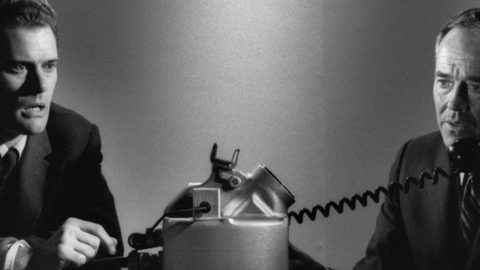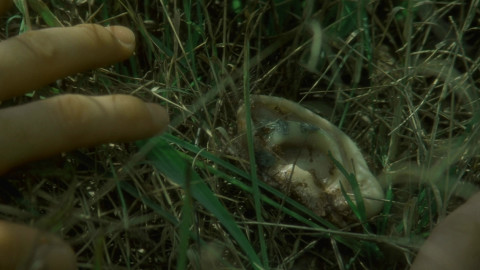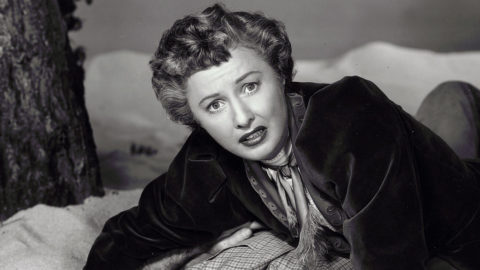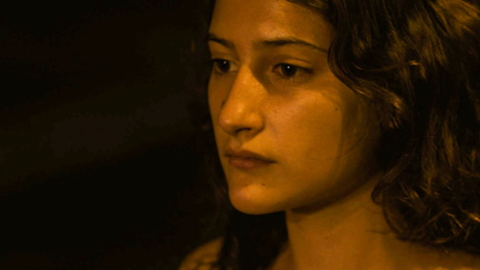News to Me: Bruce Baillie, David Lynch, and Pedro Almodóvar
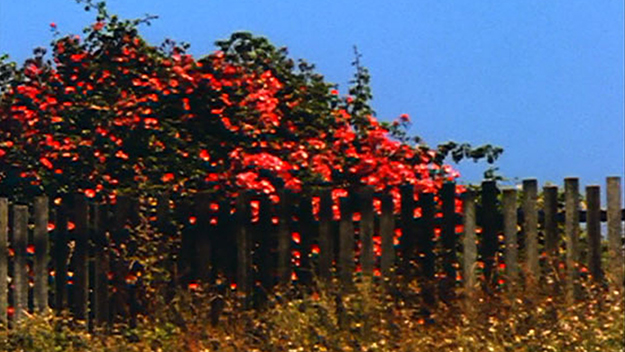
All My Life (Bruce Baillie, 1966)
1. We’re almost five weeks into quarantine here in New York (or is it five years?), with our dutiful podcast team working overtime to bring you near-daily updates of our new At Home series. Last week we were joined by the preeminent David Bordwell to discuss his book, Reinventing Hollywood, as well as a broad swath of international cinema. But one film seems to be stuck in Bordwell’s mind of late, the ill-fated The Hunt—initially delayed due to back-to-back mass shootings, only to be released at the outbreak of COVID-19. In a recent blog post, Bordwell uses the film as a case study to discuss how we “read” films: “Filmmakers are practical psychologists. They know, from having consumed films as well as made them, how to highlight information and make it vivid and salient, so that we’ll lock in our concepts easily.”
2. On another recent episode of At Home, we were joined by critic and curator Ed Halter—one of the spearheads of the Cinema Worker Solidarity Fund. Continuing the trend of further reading from our podcast guests, Halter recently published two essays for 4Columns: The first, on HBO’s High Maintenance, in which he describes the series lead, “The Guy,” as “the Spirit of Weed itself, a Bacchus of the bong rip”; and the second, on Weegee’s 1945 anthology Naked City. “Little blasts of burning magnesium provide the incandescent force that reveals the nakedness of his book’s title. Thumb through its amber-toned images of bar drunks, tenement sleepers, lip-locked lovers, paddy wagon-bound criminals, and various other denizens of Gotham’s demimonde and see how figures are compelled to emerge from the dark only by Weegee’s flash.” (Re: High Maintenance, NYT Magazine’s Willy Staley had a great piece on the kitsch-ification of New York earlier this year.)
3. Due to the current shutdown, more and more cinemas and film festivals are making the shift to online viewing, including our own Film at Lincoln Center. So if you’re looking for something to lift your spirits, Bacurau is currently available for a virtual screening, as is Vitalina Varela via Grasshopper Film and The Whistlers via Magnolia Pictures. And FLC’s annual Rendez-Vous with French Cinema has been given new life thanks to Festival Scope, where a number of films are screening for free until April 16—including Bruno Dumont’s Joan of Arc.
4. “Streaming is certainly not new. But distributors partnering with art houses to stream movies in a way that supports theaters with revenue is certainly new.” Ryan Faughnder writes for the Los Angeles Times on supporting local cinemas, covering the many ways in which theaters are being passed over in this new, essentially mandatory, distribution model. For some cinemas, it’s simply a matter of treading water until the virus runs its course, but for others, this sea-change may have altered things for good—one founder stating: “I don’t know that the streaming is going to stop after we reopen. We might be able to say, ‘Well, we can’t put your movie in our theater, but I can put it on our streaming site.’”
5. One such example of a cinema creating its own streaming site is the renowned Cinémathèque Française—a Parisian non-profit founded in 1936 that is also home to one of the largest film-related archives in the world. Though their website already offered a number of digital morsels—including their series of “cinema lessons” with Martin Scorsese, Jia Zhangke, Lee Chang-dong, among others—the Cinémathèque has now launched Henri, a streaming platform showing some of the many rare works in their collection (named for their founder, Henri Langlois). First up: a collection of Jean Epstein’s films, including The Three-Sided Mirror, Le Tempestaire, and La Chut de la maison Usher.
6. “Then came this unimaginable edition—an edition that was moreover fated not to be—which has not only been cancelled in its physical form, but must also attempt to exist in a world which, like a grade-Z science-fiction film, seems on the verge of disappearing.” Visions du Réel is set to kick off its “online edition” on April 17, this year paying tribute to its “Maître du Réel” Claire Denis. A number of Denis’s films will be available for free online throughout the festival, including Beau Travail, White Material, and Jacques Rivette, le veilleur, with Denis presenting a masterclass on a date yet to be confirmed. The festival’s full line-up is available here, featuring two retrospectives—on the work of Petra Costa and Peter Mettler.
7. “During the outbreak, between 80% and 90% of American movie theaters were closed for anywhere between two to six months . . . The studios put a ban on filming crowd scenes . . . Distributors also suffered because you can’t ship films when theaters are closed. But the greater economic impact was felt by the exhibitors, the mom-and-pop movie theaters across the country, which were ruined by this.” If you’re curious as to why all this familiar-sounding catastrophe—surely not over yet—is written in past tense, the answer is that all this happened over a hundred years ago. For Deadline, Hollywood historian William Mann discusses the effects of the Spanish Flu on Hollywood, and what parallels we might find today: “People didn’t have enough masks, and then when people did get masks, it was seen as kind of cowardly.”
8. “I’ve stopped checking my watch, I only look at it in order to count the steps I walk down the long side corridor in my home, the corridor where Julieta Serrano reproached Antonio Banderas for not being a good son, referring to me.” During the lockdown, Pedro Almodóvar has been keeping busy writing essays—diary-like entries on time-passing and movie-watching. IndieWire has translated the first and second of hopefully many installments (“With tears still on my cheeks, I take a breather before I go back to James Bond”), as well as a sweet message from Apichatpong Weerasethakul, who speaks of the plum tree in his garden: “Normally when plants at home produce unusual amounts of fruits and flowers, they tell us that they are trying to spawn because they are dying. So I look at the flowers with an anticipation of death . . . This thought makes each fruit taste even more exquisite.”
9. If you’re in the market for isolation advice from your favorite filmmakers, you’ll be glad to hear of this recent David Lynch interview with Vice. (The article opens, “Life has never felt more Lynchian.”) In it, Lynch gives us a sense of his day-to-day—mostly drinking coffee and making lamps—and waxes poetic on the benefits of Transcendental Meditation. He prophesies that the world might come out a better place after all this, but, “In the meantime, there are things that people can do at home. They can draw, they can paint, they can build small things, they can write lyrics, they can write poems, they can write stories that can later be filmed, they can play games, they can invent games. So many things can happen in a small space . . . It’s an opportunity for a bunch of different experiments.”
10. Mort Drucker, best known for his caricature contributions to MAD magazine, passed away last week, aged 91. For the the New York Times, J. Hoberman pays tribute to the artist, making special mention of our 2013 article by Grady Hendrix: “the arrival of Mort Drucker in 1957 changed everything. Initially no one saw Drucker’s talent. Then in 1959 he drew the television parody The Night Perry Masonite Lost a Case and the basic movie parody format for the next 44 years was born.” Hendrix continues: “The format is bulletproof, and it still works. Today’s decline has less to do with the parodies themselves and more to do with changing film distribution patterns . . . These days, movies are in theaters for three weeks or less. Since it takes up to three months to commission and draw a parody, the magazine is now in a constant race against time.”
We also lost several filmmaking greats this past week: Bruce Baillie, who passed away late last week, and Sarah Maldoror, who passed this Monday in Paris. We leave you this week with Baillie’s All My Life:
https://youtube.com/watch?v=xxN0bB64Xxg



